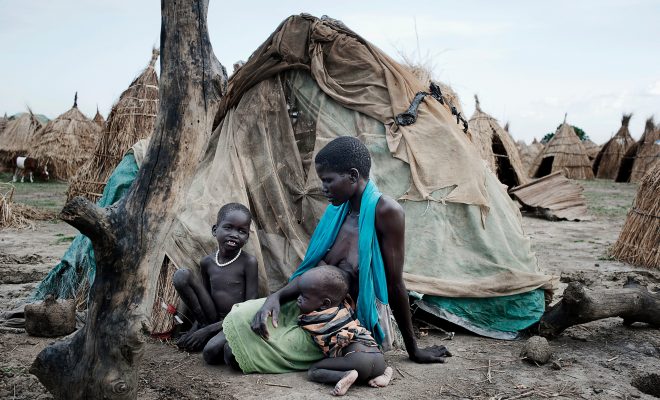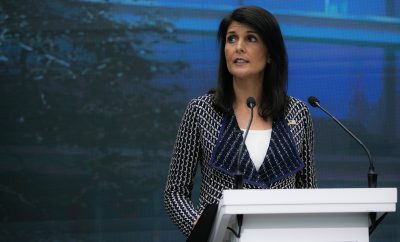 "South Sudan" courtesy of World Humanitarian Summit; license: (CC BY-ND 2.0)
"South Sudan" courtesy of World Humanitarian Summit; license: (CC BY-ND 2.0)
World
UN Declares Man-Made Famine in South Sudan
On Monday, the United Nations formally declared a famine in parts of South Sudan, saying that the civil war and the collapse of the economy have left 100,000 people facing starvation. As many as a million more are on the verge of it. Now the UN urges the international community to act fast, as the number of people at the brink of starvation will rise to an estimated 5.5 million in July, which is the peak lean season.
“Famine has become a tragic reality in parts of South Sudan and our worst fears have been realised. Many families have exhausted every means they have to survive,” said Serge Tissot, a representative for The Food and Agriculture Organization of the United Nations (FAO) in South Sudan. He added that most of the affected families are farmers who had their land and agriculture disrupted by the armed conflicts. People have had to rely on what little food they can find.
Famine has been declared today in parts of #SouthSudan. 100k facing starvation, almost 5m urgently need aid https://t.co/0TxKfgqfar pic.twitter.com/jJcT0of89x
— UNICEF (@UNICEF) February 20, 2017
This is the first declared famine since 2011 in Somalia, when more than a quarter of a million people are believed to have succumbed to starvation between October 2010 and April 2012. Expectations were high that South Sudan, the world’s youngest country that gained independence from Sudan in 2011, was going to prosper because of ample oil in the area. But the new country is also home to over 60 different ethnic groups and the conflicts didn’t end with their independence.
#Famine hits parts of #SouthSudan: 100,000 ppl facing starvation. 5 mln ppl need food, #ag & nutrition assistance https://t.co/IQGSr0YI2K pic.twitter.com/e5HmsqlRrA
— FAO Newsroom (@FAOnews) February 20, 2017
Malnutrition is a public health emergency in South Sudan and armed fighting, displacement, and poor access to health services have aggravated the situation. According to UNICEF, more than a million children are already malnourished and many will die unless they get immediate help. And to make matters worse, the crisis could have been prevented: “This famine is man-made,” said Joyce Luma, Country Director at World Food Programme, WFP. She added:
WFP and the entire humanitarian community have been trying with all our might to avoid this catastrophe, mounting a humanitarian response of a scale that quite frankly would have seemed impossible three years ago. But we have also warned that there is only so much that humanitarian assistance can achieve in the absence of meaningful peace and security, both for relief workers and the crisis-affected people they serve.
Another contributing factor to the severity of the situation is serious inflation and a devaluation of the currency by 800 percent in the past year, resulting in food prices rising ten-fold. It has also been reported that President Salva Kiir’s government has been blocking humanitarian aid to certain areas.








Comments